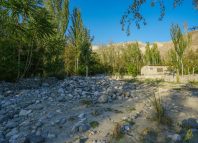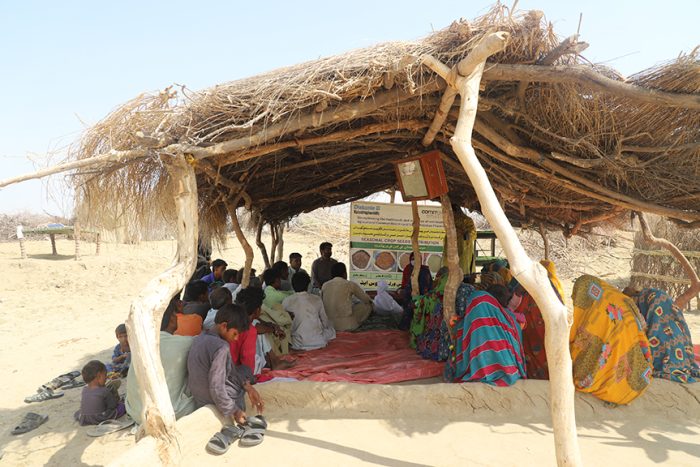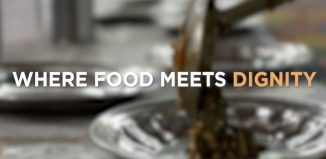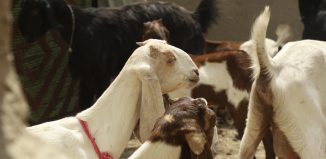Seeds, Support, and Strength: Building Food Security in Jumo Dadh through Community-Based Aid
In the sun-scorched plains of Tharparkar lies village Jumo Dadh, home to families that rely heavily on farming and livestock to earn a living. Most residents here work as sharecroppers, cultivating land owned by others in exchange for a portion of the harvest. This arrangement leaves them with limited means and little control over their financial wellbeing.
When the sky doesn’t rain for months, they miss out on whatever little promise of livelihood they could have had. Without water, the land stays dry and unproductive, and the hard work of preparing the fields brings no return. A lost season is a lost chance. Once it slips, so does the hope it carries.
In June 2025, hope took root in Jumo Dadh village as 26 households came together to receive their first-ever package of crop seeds. This milestone, led by Community World Service Asia in partnership with Diakonie Katastrophenhilfe (DKH), marked a vital step toward supporting climate-affected desert communities.
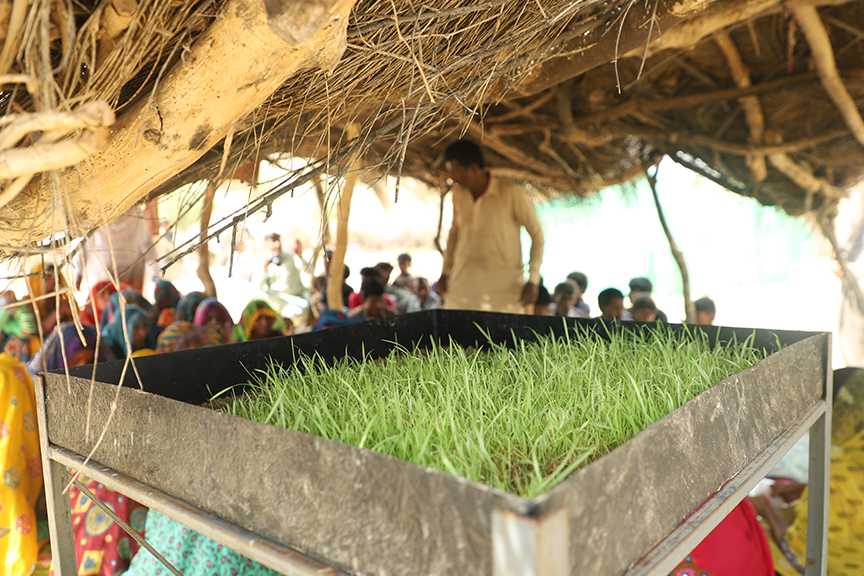
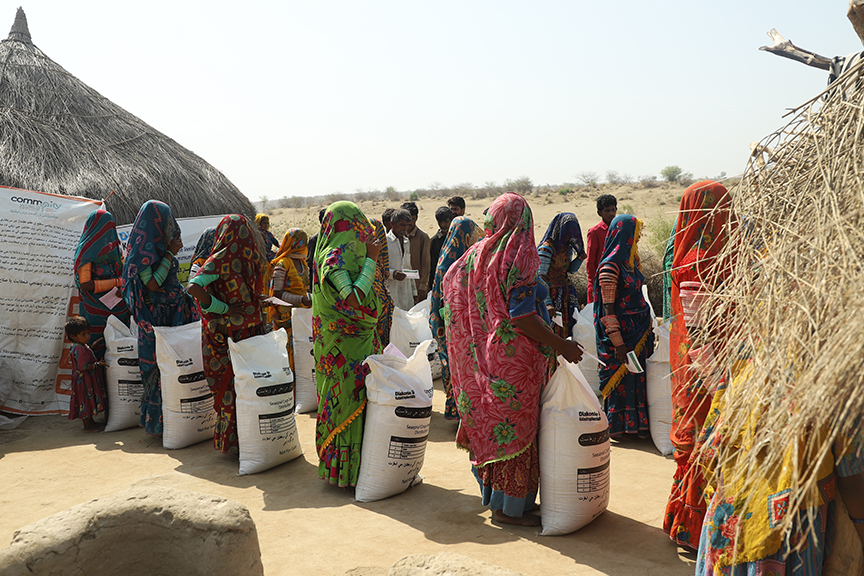
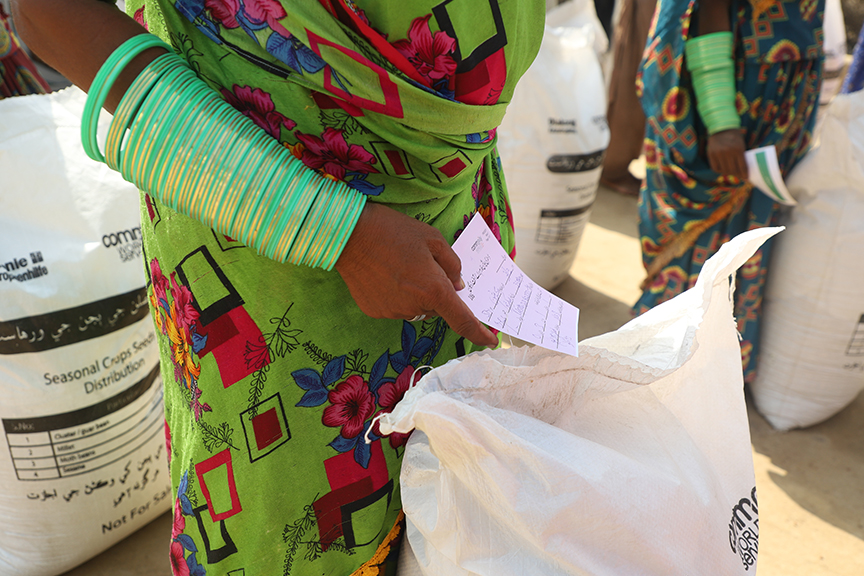
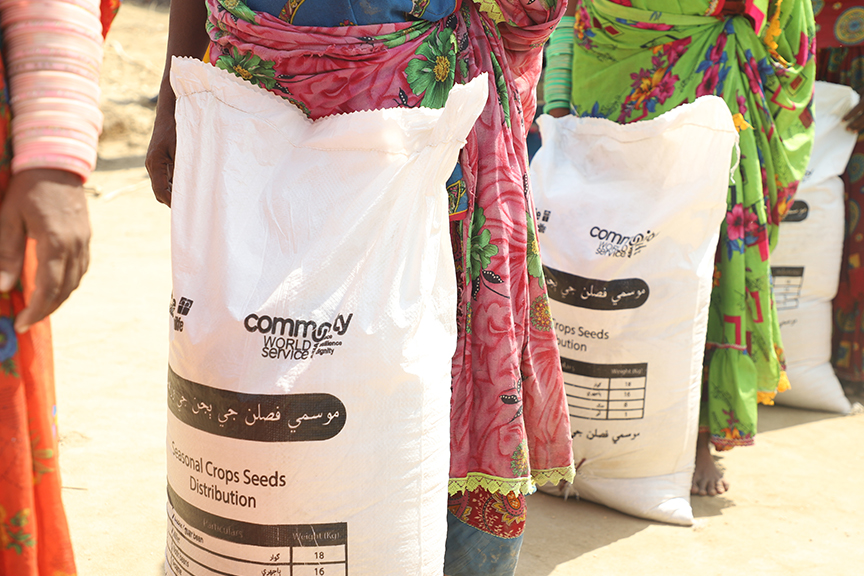
This initiative is designed to enhance local agricultural practices, strengthen food security, and support the development of resilient livelihoods. Central to its approach is the empowerment of communities to lead and sustain their own progress through improved response capacities.
During the initial assessment phase, community members were actively involved in identifying their most pressing needs. A range of participatory methods, including focus group discussions, village meetings, and inclusive tools, ensured that voices from across the community were heard, especially those of women, elders, youth, and marginalised groups.
Existing community bodies such as Village Management Committees (VMCs) and Disaster Risk Reduction (DRR) committees play a pivotal role in implementing the project. These structures provide local leadership and help ensure that interventions are contextually appropriate and community-driven.
To promote accountability and continuous improvement, the project has established regular feedback channels. Community review meetings and complaint-response systems enable residents to raise concerns, share suggestions, and will actively shape the project throughout its lifecycle.
For generations, these families have relied solely on rainfall and livestock to sustain their livelihoods, often struggling to cultivate crops due to erratic weather and limited farming inputs. Each season brought uncertainty and hardship. The seeds package they received under the project, offers a chance to grow food and rebuild resilience. Each package includes 18 kg of cluster beans, 16 kg of millet, 8 kg of moth beans, and 1 kg of sesame.
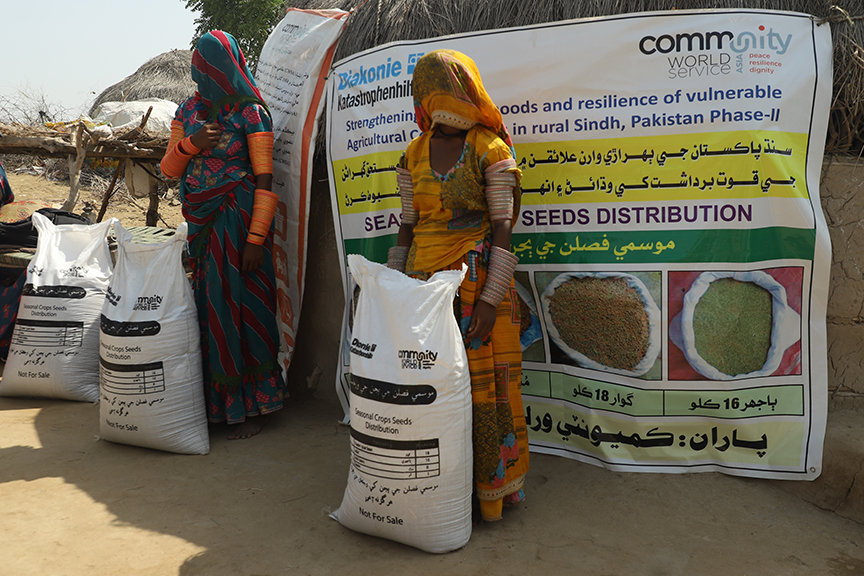
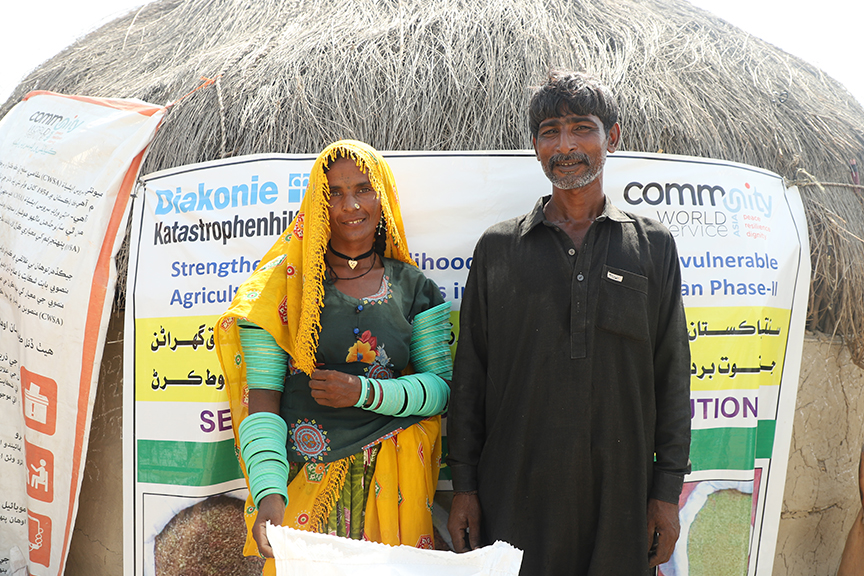
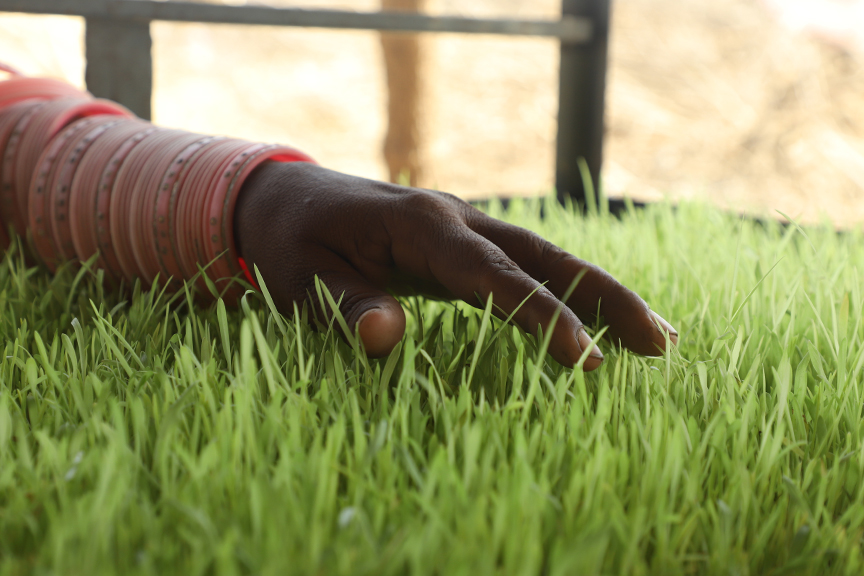
Families were selected using a clear criteria; including household size, number of dependents, women-led homes, income levels, and existing livestock assets. As part of the distribution process, farmers were shown the contents of their seed packages to ensure transparency and trust in the organisation’s commitment. They also received practical training on how to sow and care for the crops effectively. The training inculcated the community with the necessary technique and knowledge to optimise farming. By providing training and capacity-building opportunities, the initiative will strengthen local ownership. Community members will gain practical skills and knowledge, empowering them to sustain the benefits of the project long after its formal conclusion.
The distribution of millet and cluster bean seeds offered more than just agricultural inputs, they sparked a renewed sense of hope. For many families, it marks the first time they received seeds to cultivate on their own land. With support and practical guidance, they began preparing their fields, motivated by the prospect of feeding their families and generating a meaningful income.
Before the project began, the village community faced significant challenges. There were limited opportunities for collective dialogue, and residents had not previously engaged in vegetable cultivation, received food-related financial support, or participated in trainings on Disaster Risk Reduction (DRR) or climate-smart agriculture. Livestock such as goats, valuable for nutrition and income, were also absent from local households.
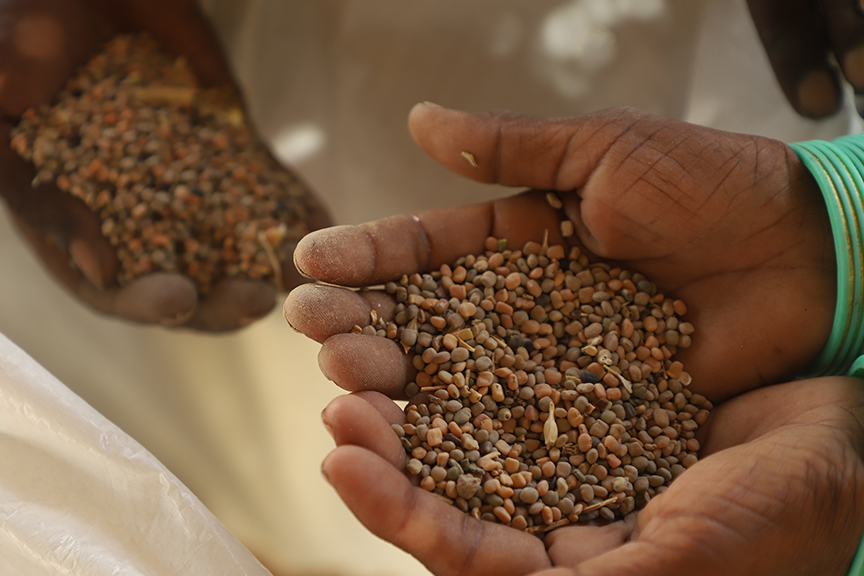
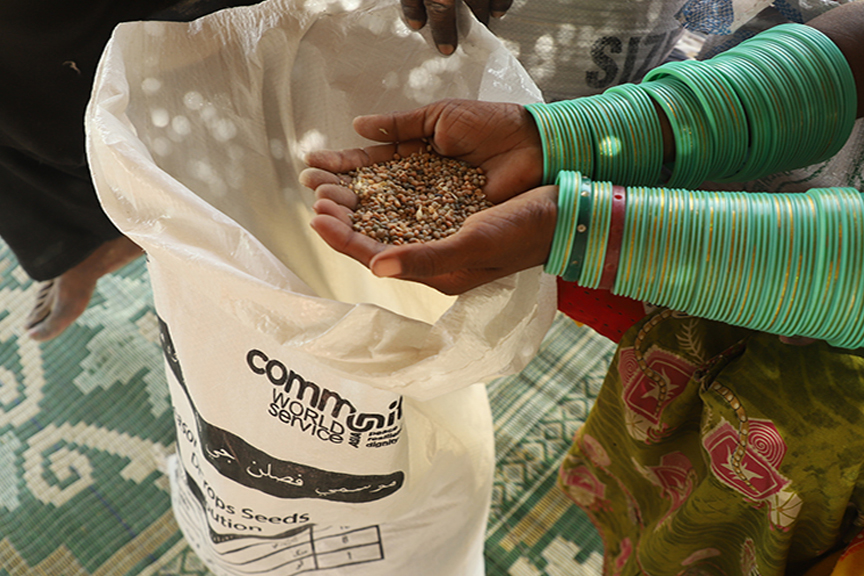
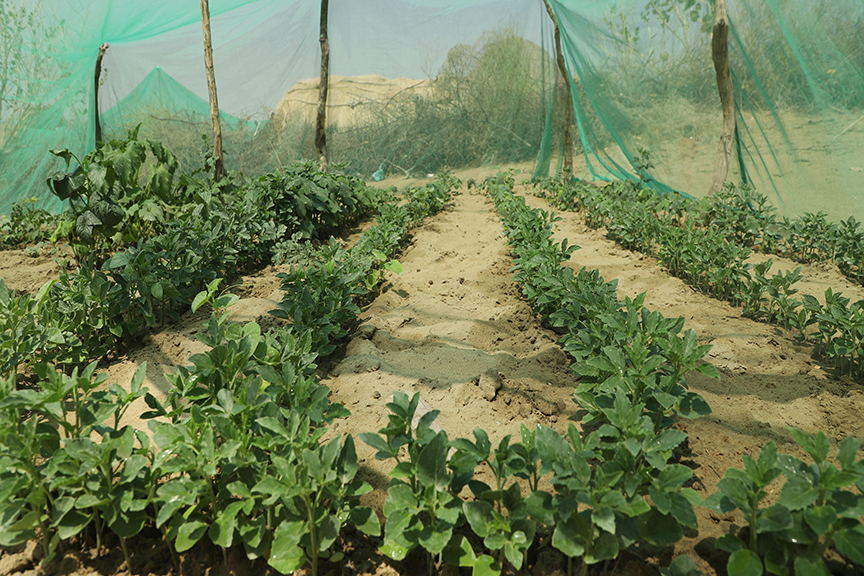
Following the intervention, the village has seen a remarkable transformation. Community structures such as Village Management Committees and DRR Committees have been established, creating platforms for shared decision-making and local leadership. Every household now maintains a kitchen garden, providing fresh, nutritious vegetables daily. Many families have also begun keeping goats, improving access to milk and enhancing food security.
Residents have actively participated in trainings focused on DRR and climate-smart agriculture, equipping them with practical skills to adapt to environmental challenges. A dedicated Disaster Risk Management Center (DRMC) has also been set up, serving as a hub for preparedness and coordination.
The village was selected based on a comprehensive vulnerability assessment, which considered factors such as poverty levels, food insecurity, limited access to essential services, and heightened exposure to climate-related risks. These indicators highlighted the urgent need for targeted support and sustainable solutions. The people of Jumo Dadh feel happy and take pride in being hard workers who commit selflessly and limitlessly to their labour and land. A good yield at the end of the day is the only reward they seek. A simple hope of seeing their children go to bed with full stomachs is the catalyst behind their staunch commitment. Despite assistance in other areas, this was the first of its kind for which the community expressed nothing but deep gratitude.




